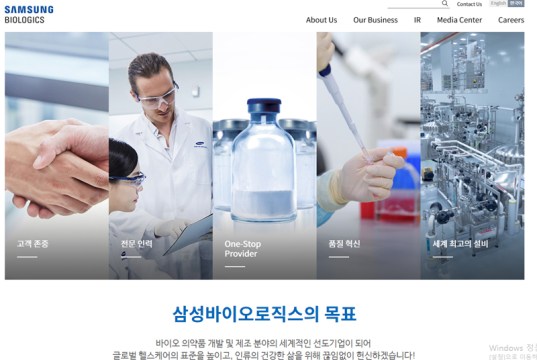Samsung Biologics is suspected of lobbying the Blue House for KOSPI listings.
Samsung BioLogics denies allegations of lobbying the Blue House and receiving favorable treatment when they publicly listed their company on South Korea’s main stock market.
The allegations arose due to the sudden changes made to KOSPI listing regulations. KOSPI’s regulations had previously required companies to have sales exceeding 100 billion won, or profit exceeding 3 billion won for public listing. However, they quickly reformed the listing requirements when Samsung BioLogics entered the market, raising suspicion.
The suspicions that Samsung BioLogics received preferential treatment in KOSPI listings first surfaced on November 10, 2016.

Samsung BioLogics refuted these claims stating that KOSPI wasn’t a priority; in fact, it first considered plans to “list on the U.S. NASDAQ which had a high understanding of the bio industry and a mature investment market.”
The company added that the NASDAQ made more sense they manufactured biopharmaceuticals through consignments with foreign pharmaceutical companies. In addition, they pointed out that foreign investors have a higher share in large-quantity stocks (excluding the retention quantity of major shareholders) than local investors.
They were able to do this by publicizing medium to long term vision and business situation for potential investors at the global conference such as the JP Morgan Health Care Conference.
Samsung BioLogics and the stock market jointly stated that Samsung BioLogics was listed on the KOSPI because the Korean stock exchange made active requests for the company to list on the KOSPI in order to activate the domestic stock market.
“After the Stock Exchange changed its listings regulations last year, the Stock Exchange visited the company several times from November 2015 to January 2016 in an effort to increase the amount of listings on the KOSPI or KOSDAQ. We told them that we had no specific plans for listing and if we did, we would have to weigh the pros and cons against listing on the NASDAQ.”
They also had to consider imminent negative public opinion in case both Samsung BioLogics and BioEpis were to be listed on the U.S. stock market.
They explained that the decision to list on the KOSPI was made in spite of the small benefits received, due to recommendations from the Stock Exchange and public opinion.
The Stock Exchange also published clarifying data on November 29, 2016, saying that “the listing of Samsung BioLogics did not happen through the company’s request. Rather it was done in the process of actively seeking new listings on the KOSPI market. The Stock Exchange announced that KOSPI intends to continually expand listing opportunities to companies with high potential for growth, saying that "listing unprofitable companies is common practice in the U.S.”

